Here, I want to draw your attention to “Gas Age: Global Prospects” Panel which was arranged and hosted by Boğaziçi University (Bosphorus University) Energy Policy Research Center – Boğaziçi Üniversitesi Enerji Politikaları Araştırma Merkezi (EPAM), Turkish Association for Energy Economics – Enerji Ekonomisi Derneği (EED) and with contributions of International Association for Energy Economics held on 22 December 2017 at Rectorate Conference Hall. The Panel deliberated the present status and the future prospects of the gas sector for Turkey and Europe. The prospects were illuminated in terms of several aspects. Turk Stream project was examined for instance as well as initiatives of the Europe 2020 and 2035 Strategy.
The purpose and objective of this article is to provide an overview of Panel topic, predominantly Turk Stream via the PowerPoint presentations with short reviews of retrospective snapshots of the project. I want to extend my thanks to the all organizers, participants and coordination bodies regarding the Panel for the cooperative effort in the preparation of this article by providing PowerPoint presentations slides (All copyrights are reserved). Those pictures of TurkStream Offshore Gas Pipeline Project presentation became an indispensable source for this article after the Panel.
The Panel: “The Gas Age: Global Prospects” Panel organized by Boğaziçi University (Bosphorus University) Energy Policy Research Center – Boğaziçi Üniversitesi Enerji Politikaları Araştırma Merkezi (EPAM), The Turkish Association for Energy Economics – Enerji Ekonomisi Derneği (EED) and with contributions of International Association for Energy Economics – IIEA started with a welcome & Introduction at 3 PM on 22 December 2017 at Rectorate Conference Hall with the lead of Prof. Gürkan Kumbaroğlu, Director of the Energy Policy Research Center and Professor of IE, Boğaziçi (Bosphorus) University. The event continued with Keynote Speakers Albert Haak, Deputy Technical Director at South Stream Transport B.V., Prof. Peter Hartley, George and Cynthia Mitchell, Chair in Sustainable Development and Environmental Economics and Professor of Economics at Rice University. The Panel finally closed up with with Panel discussion that was chaired by Prof. Ilhan Or, Director of the Institute of Graduate Studies in Science and Engineering and Professor of IE, Boğaziçi University with panelists Prof. Peter Hartley and Albert Haak.
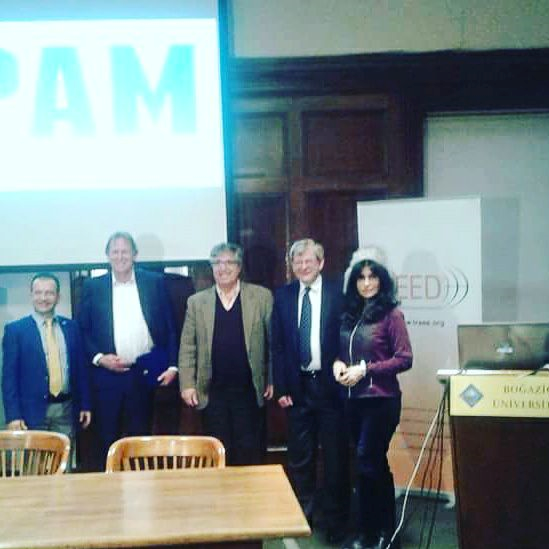
Photo: Gürkan Kumbaroğlu, Albert Haak, İlhan Or, Peter Hartley, Çiğdem Yorgancıoğlu.
The Panel covered a wide range of topics concerning the economic, social, logistic, environmental technical development dynamics. The development and implementation of new and resilient networked energy infrastructure within the operating principles of resource and financial resilience in the sectors of energy efficiency, power, oil and gas, hydrocarbon products, petrochemicals and transport were discussed as well.
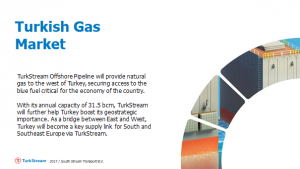
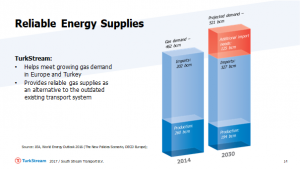
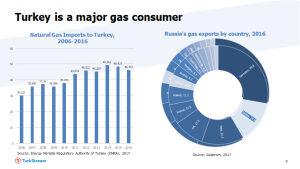
Turk Stream or Turkish Stream (Türk Akımı)
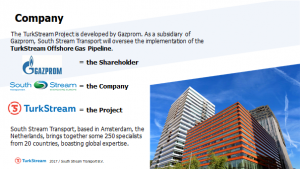
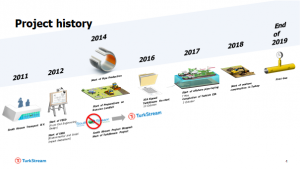
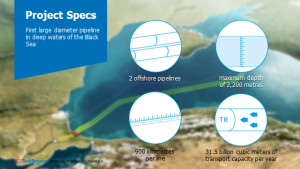
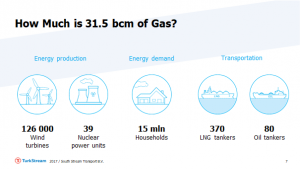
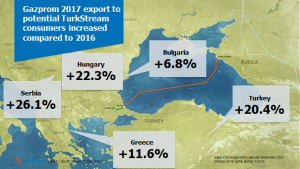

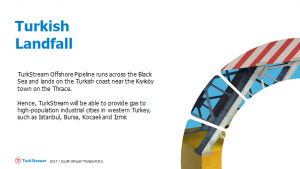
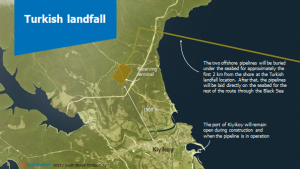

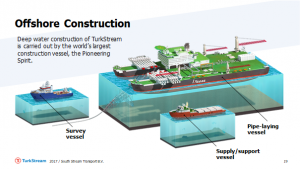
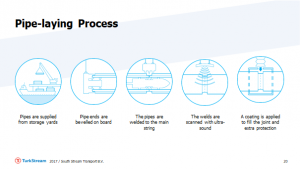
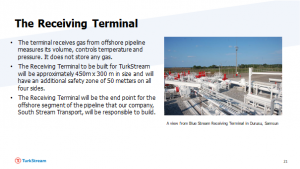
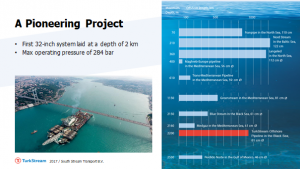
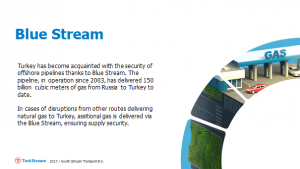
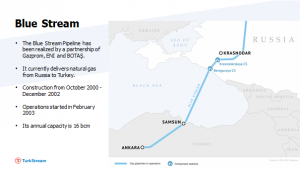
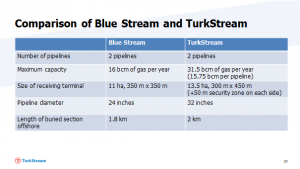
Conclusion
The option of importing U.S. LNG a kind of mechanism for negotiating new long- and short-term prices with other suppliers. Surely, it’s the power and logic of the negotiation in the emerging competitive environment. Some central and east European countries especially Poland and Lithuania might prefer to import U.S. LNG and pay a higher astronomic price because they made reduction of dependence on Russian gas one of their main political priorities as they see it as a security issue. So, regardless of opposition from Poland and Ukraine, the EU Commission is unlikely to stop the Nord Stream 2 project since it enables the bloc to achieve its clean energy objectives. In the meantime, if U.S. LNG delivered into Europe is steadily higher priced than Russian gas, the trade will not be feasible and sustainable.
Besides, according to opinion leaders, the Nord Stream 2 project provides the EU Commission an opportunity to implement its “Energy Union” strategy, which was adopted in February 2015 and aims to provide Europe with secure, affordable and climate-friendly energy. Importing more gas from Russia is necessary for the EU since reserves in the EU and Norway are depleting, while proliferation of gas consumption is expected over the next few decades. In the light of the facts, issues and opinions; although Europe is seeking for alternatives, the revolutionary change to unchain “Russian gas dependency and vulnerability for Europe” is not so near. EU energy importers seems to extend their dependence on the gas giant namely Russian Federation for the time being.
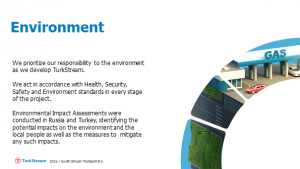
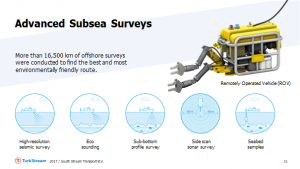
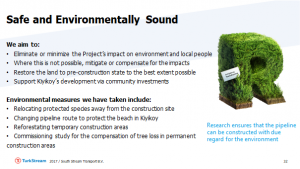
Keynote Speakers at the Panel also emphasized the Environmental Impact Assessments conducted in Russia and Turkey, identifying the potential impacts on the environment and the local people as well as the measures to mitigate any such impacts. They also highlighted the significant investments that have made, including process carried out for national Environmental Impact Assessments (EIA) for both Russia and Turkey.
H. Çiğdem YORGANCIOĞLU


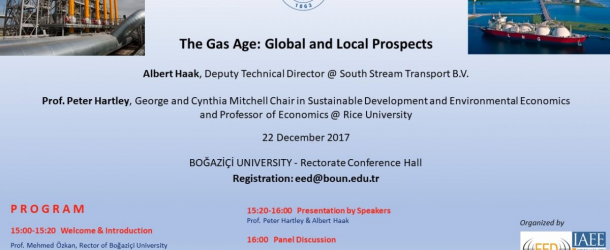






















































2 Comments »